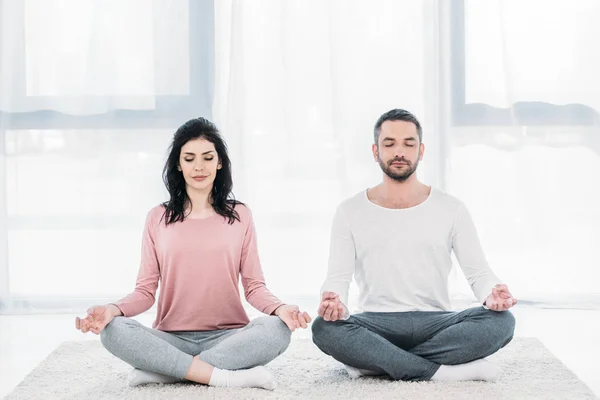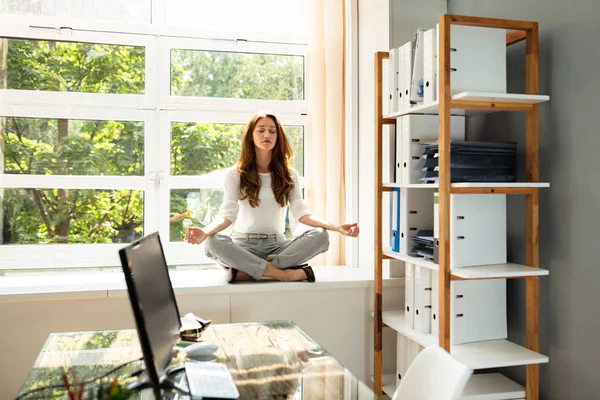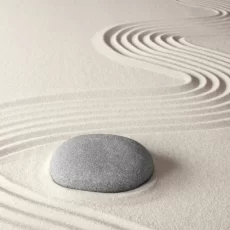“You should sit in meditation for twenty minutes every day unless you are busy. Then you should sit for an hour.”
Zen proverb.
This is an ideal situation if you practice meditation to live a happy life. Many of us are aware of the immense benefits of meditation but feel very lazy to practice it. Like other aspects of our daily routine, where we schedule the regular course of day-to-day life, we just don’t schedule meditation. Even if we schedule, we say, “I will do it from tomorrow and tomorrow never comes.”

Let’s face the fact, that we are living in very stressful times, right from eight- to eighty-year-olds are stressed. Life throws new challenges every other day which agitates our minds thus resulting in bad physical and mental health. Times are really tough as the world has become a highly demanding one. With 24-hour connectivity to work and constant digital overload at home and the office, we are subject to more stress and under more pressure than ever before.
As a result, our stress response – one of our innate physiological mechanisms that should only be triggered in life-threatening situations – is triggered constantly, not by lions and tigers, but by traffic jams, public speaking, heavy workloads, and financial and relationship troubles.
In such a situation, meditation helps. It not just helps but majorly transforms your life. It makes you calmer and more patient and provides you the power to face the anxieties of modern-day life. Not only this, it can strengthen areas of your brain responsible for memory, learning, attention, and self-awareness. The practice can also help calm down your sympathetic nervous system. Over time, mindfulness meditation can increase cognition, memory, and attention.
Not only this, meditation can benefit both your emotional well-being and your overall health. You can also use it to relax and cope with stress by refocusing your attention on something calming. Meditation can help you learn to stay centred and keep inner peace.
So now you know how meditation helps and why you need to include it in your daily routine for the best results. You need to set up an alarm for meditation and you should leave every other job aside to practice meditation.

Kristopher Rhoads, a psychologist at Harborview Medical Center, “You can’t go in expecting to experience enlightenment or to have a mystical experience.” He adds, “But people do find that at the end of even a 10- or 15-minute practice they feel more centred, calmed or relaxed. It’s great if that happens and it’s great if it doesn’t. Trust in the process.”
His observation couldn’t have been more apt than this.
Meditation has two-pronged benefits: Psychological benefits and physical benefits.
The psychological benefits of meditation are far-reaching and the more you practice, the more benefits you experience like:
- Improved learning ability and memory
- Improved focus and concentration
- Higher confidence in personal ability
- Increased productivity
- Enhanced mood and emotional stability
- Reduced anxiety and stress
- Increased compassion
- Enhanced ability to process information
- Greater creativity
- Reduced anger
- Enhanced presence and ability to live in the moment
- Dealing with difficult situations more easily
- Reduction of negative thoughts
- Increased happiness.
Physical benefits like:
- Decreased physical tension
- Lower blood pressure
- Strengthened immune system
- Slowing of the ageing process
- Higher energy level
- Improved sleep quality
- Decreased activity in the area of the brain associated with clinical disorders such as ADHD and Alzheimer’s disease
- Reduced physical symptoms of stress and anxiety, such as digestive problems, sleep, headaches, or muscle tension.
The reason meditation is so powerful is that it causes shifts in our awareness. Many people are over-identify with their thoughts and emotions, which can prolong them and make them feel bigger than they are.

The World Health Organisation predicts burnout will become a global pandemic within a decade – in fact, it already has an estimated global annual cost of over $300 billion. Meditation can act as a circuit breaker for this non-stop lifestyle, giving both the mind and the body a chance to recharge. “Meditation is a powerful natural antidote to stress. It’s a simple mental technique used by people from all over, including some of the world’s most successful,” explains Kevin Janks of Centred Meditation.
So, it’s high time that you stop procrastinating and work out a schedule for mediation. However, there is no such specific time for meditation, you can do it anywhere you are comfortable, but it’s always better to allot time, mornings or evenings.
East or west, mornings are the best! HappyHo!!




